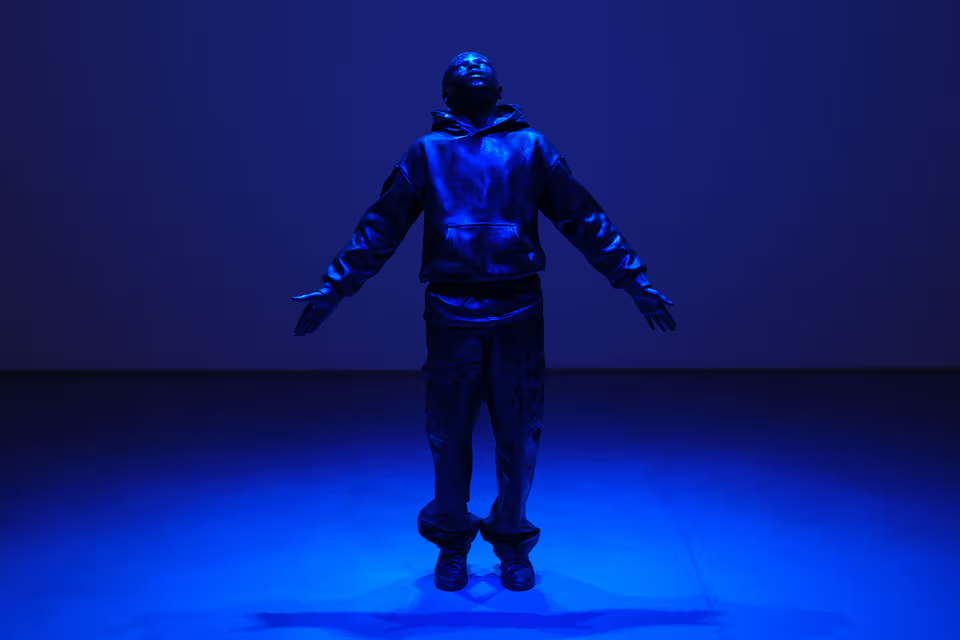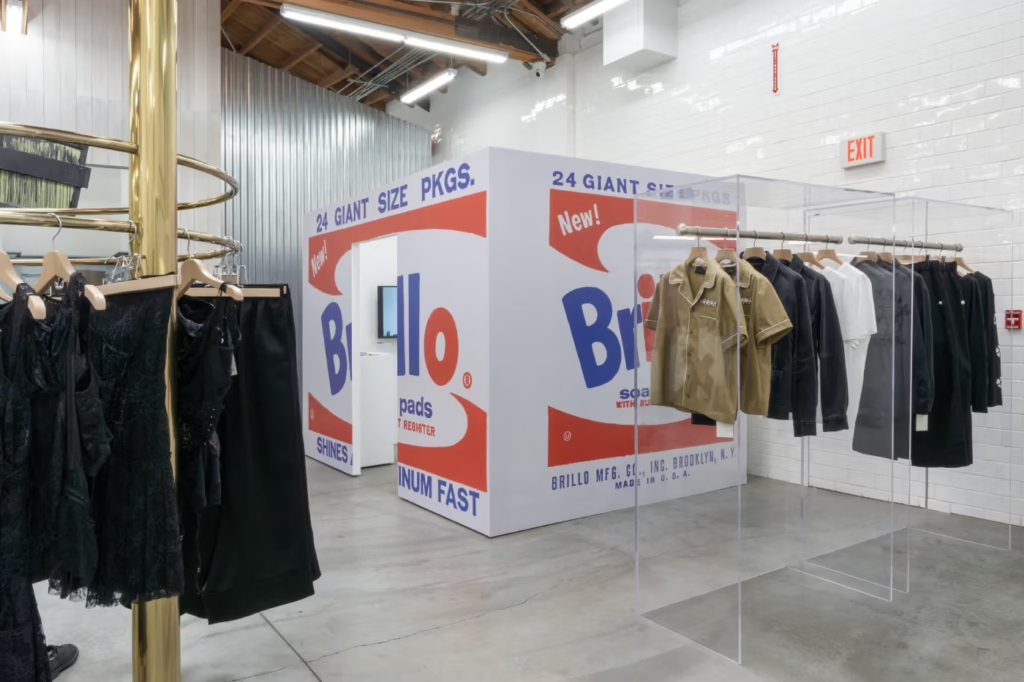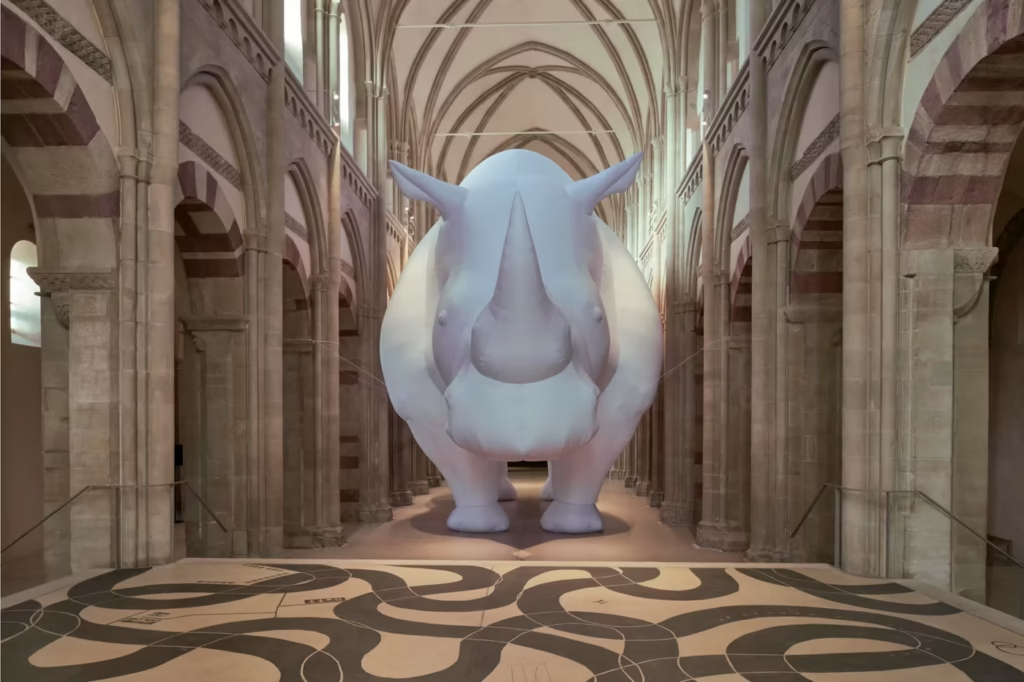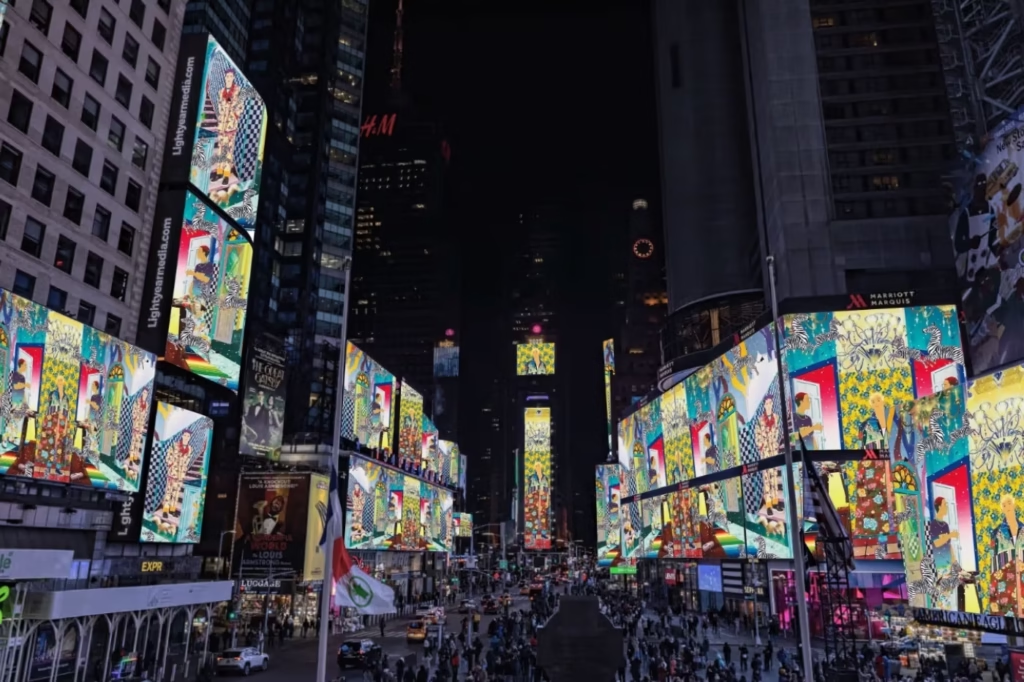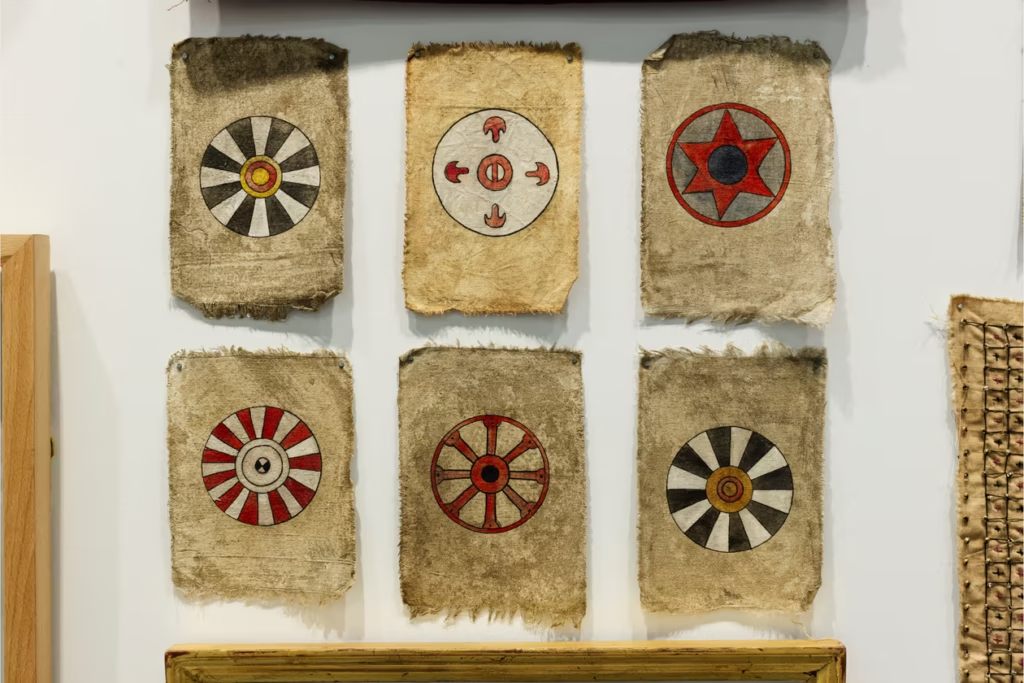An exploration of innocence, loss, and what it means to endure.
The Soul as an Archive
At Roberts Projects in Los Angeles, Esmaa Mohamoud probes into the injured soul. What Does Webster’s Say About Soul?, titled after a line in Gil Scott-Heron’s 1970 spoken word track “Comment #1,” moves through questions of harm, injustice, and endurance through the interiority of Black youth as they confront the theft of innocence and the precarity of their own existence.
Building on a body of conceptual interventions into Black visual culture — from Cadillac low riders to football garb, peacock chairs, and butterflies — each of Mohamoud’s figures fractures expectation and invents anew. In this show, the artist turns to figurative sculpture to highlight the entanglements of trauma between generations of the past, present, and future, while also granting space for tenderness, beauty, and introspection.
Between Mortality and Sacredness
Rich in cinematic tones, the works on view straddle ideas of mortality and sacredness. In I Can’t Forget You (My Whole World Turns Blue), a teenage boy in a hood stands tall with his arms outstretched in an image that hovers between martyrdom and transcendence. In another corner lies …NUMB, a milky portrait of a young boy’s chilling encounter with mortality as he cradles a lifeless pigeon in his lap.
Matter as Memory
Central to the showcase is Mohamoud’s exercise of materiality. Shea butter, long a symbol of care and preservation, becomes one with charred animal bones, bringing forth a varied range of tone. Elsewhere, granite enters the gallery as gravitas itself, as the mirrored surface of The Souls of Black Folk, a polished stone recreation of W.E.B. Du Bois’ canonical text, pulls audiences into the artist’s expansive universe where the spiritual emerges as a form itself.
The exhibition is on view at Roberts Projects in Los Angeles through November 15.


